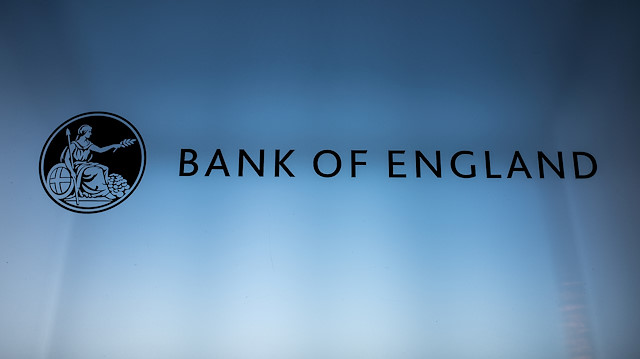

FILE PHOTO: The Bank of England logo is seen on a lectern during the launch event for the new note design at the Turner Contemporary gallery in Margate, Britain, October 10, 2019
The Bank of England told banks on Wednesday they can tap one of their capital buffers to maintain lending during the coronavirus epidemic, but warned they must not use the cash for bumping up bonuses or dividends.
Insurers were also offered relief on the long-term phase-in of new capital rules as part of a broader package that included a cut in interest rates to a record low of 0.25%.
The BoE's Financial Policy Committee (FPC) said that for banks it was cutting the so-called counter-cyclical capital buffer (CCYB) to 0%, reversing a decision last year to raise it from 1% to 2% by the end of 2020.
The CCYB is a buffer that is built up in good times for tapping in downturns or market shocks to maintain lending. It is the second time it has been released -- the first was just after Britain voted in June 2016 to leave the European Union.
The release of the buffer will support up to 190 billion pounds of bank lending to businesses, equivalent to 13 times banks' net lending to businesses in 2019, the BoE said.
"This is a big package," Bank of England Governor Mark Carney told a news conference.
Unlike in the global financial crisis a decade ago, when British taxpayers had to bail out lenders, banks have built up resilience over the past decade and are now part of the solution to coronavirus, Carney said.
"It's a totally different discussion from what we were having a decade ago," added Andrew Bailey, who takes over as governor from Carney next Monday.
The FPC said it expects to keep the CCYB at 0% for at least a year, so that any future increase would not take effect until March 2022 at the earliest.
Bailey, who currently heads the Financial Conduct Authority, said the markets watchdog expects Britain's banks to treat its customers fairly during the coronavirus epidemic.
Shares in HSBC, Lloyds Banking Group and Barclays and Royal Bank of Scotland rose by up to 2%.
Several banks have already announced measures to help customers hit financially by coronavirus, which Carney welcomed.
"The package of measures will further strengthen the ability of UK banks to continue to support our customers through the COVID-19 crisis," Lloyds said in a statement.
Andrew Kail, head of financial services at consultants PwC, said the prospect of low interest rates for longer hitting banks' revenues means they may have to consider more radical ways of shoring up their business.
The BoE's Prudential Regulation Authority (PRA), which supervises banks, said it expects lenders not to increase dividends or bonuses in response to releasing the CCYB.
Any decision taken by banks regarding bonuses must be "consistent with the maintenance of a sound capital base", it added.
Last year's stress test of leading banks in Britain showed that lenders could still provide loans to businesses even during a prolonged economic downturn "as well as falls in asset prices much larger than experienced in recent weeks", the BoE said.
Banks already hold a trillion pounds of liquid assets that enable them to meet their obligations for months, it added.
The PRA said it would also be willing to accept applications from insurers to recalculate the relief they were getting as part of a long-term phase in of their capital rules.
"In any application, the PRA expects firms to be able to demonstrate that a material change in risk profile has occurred," the PRA said.
#Bank of England
#coronavirus

